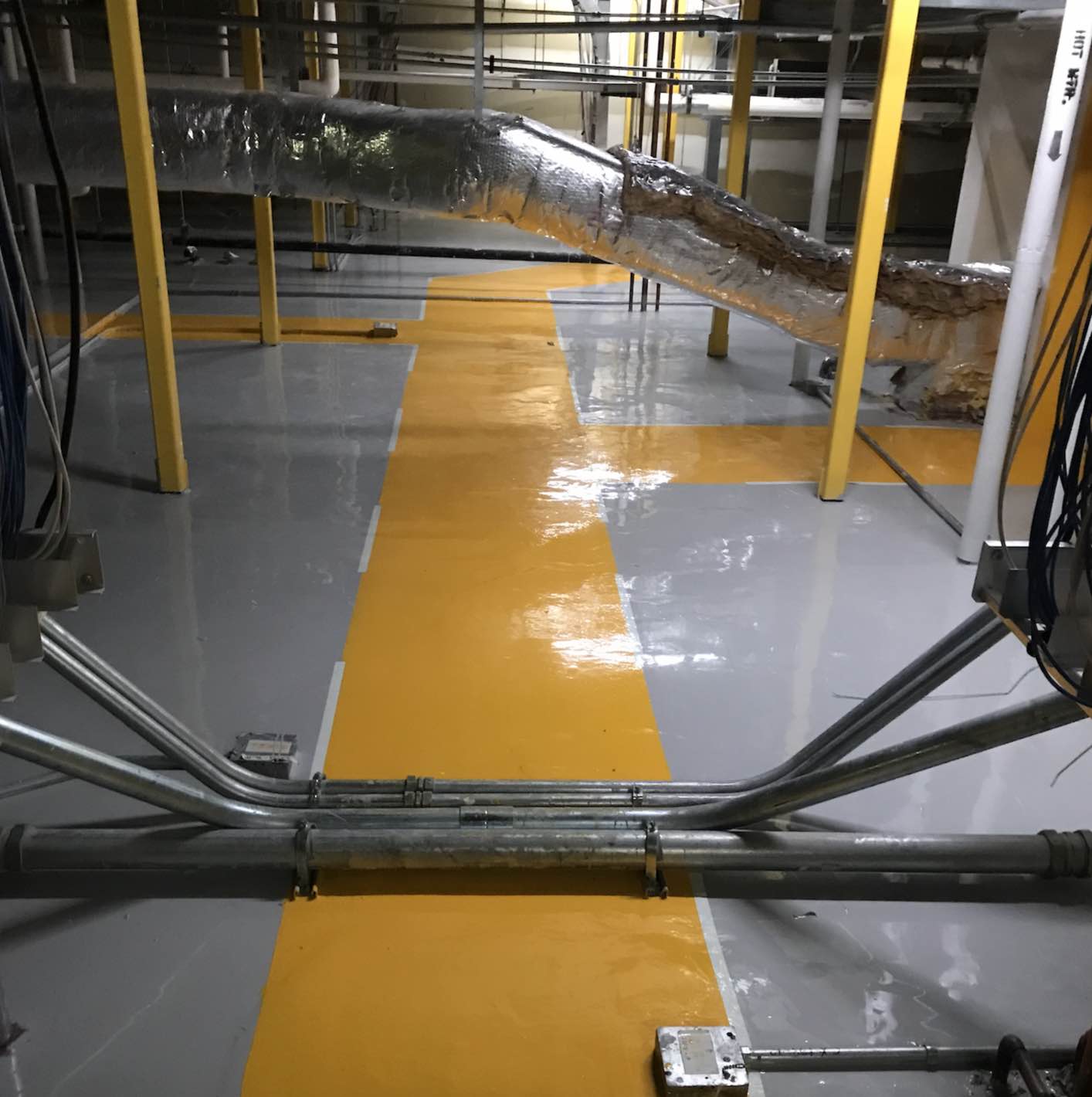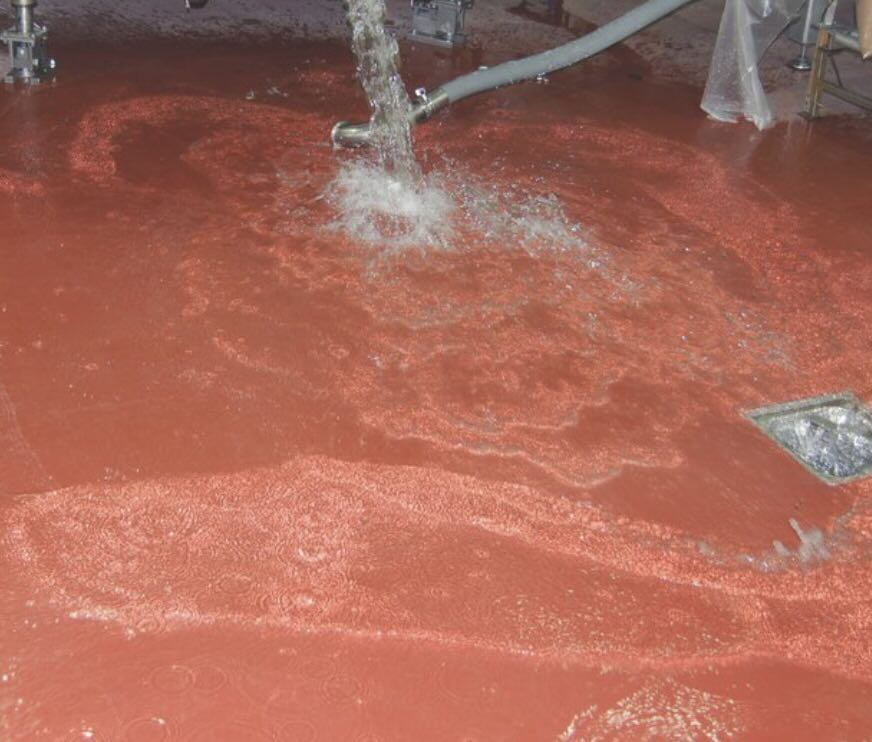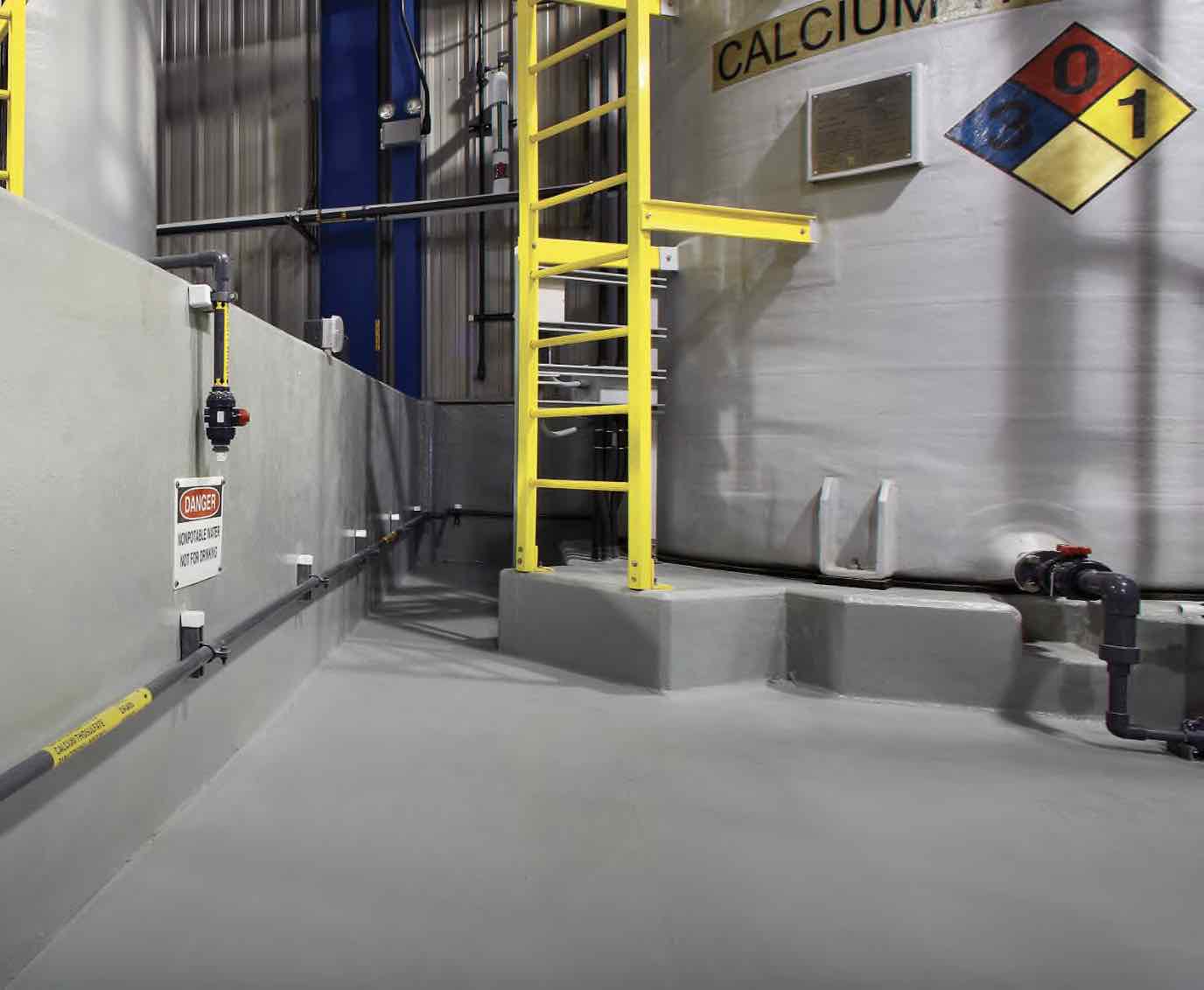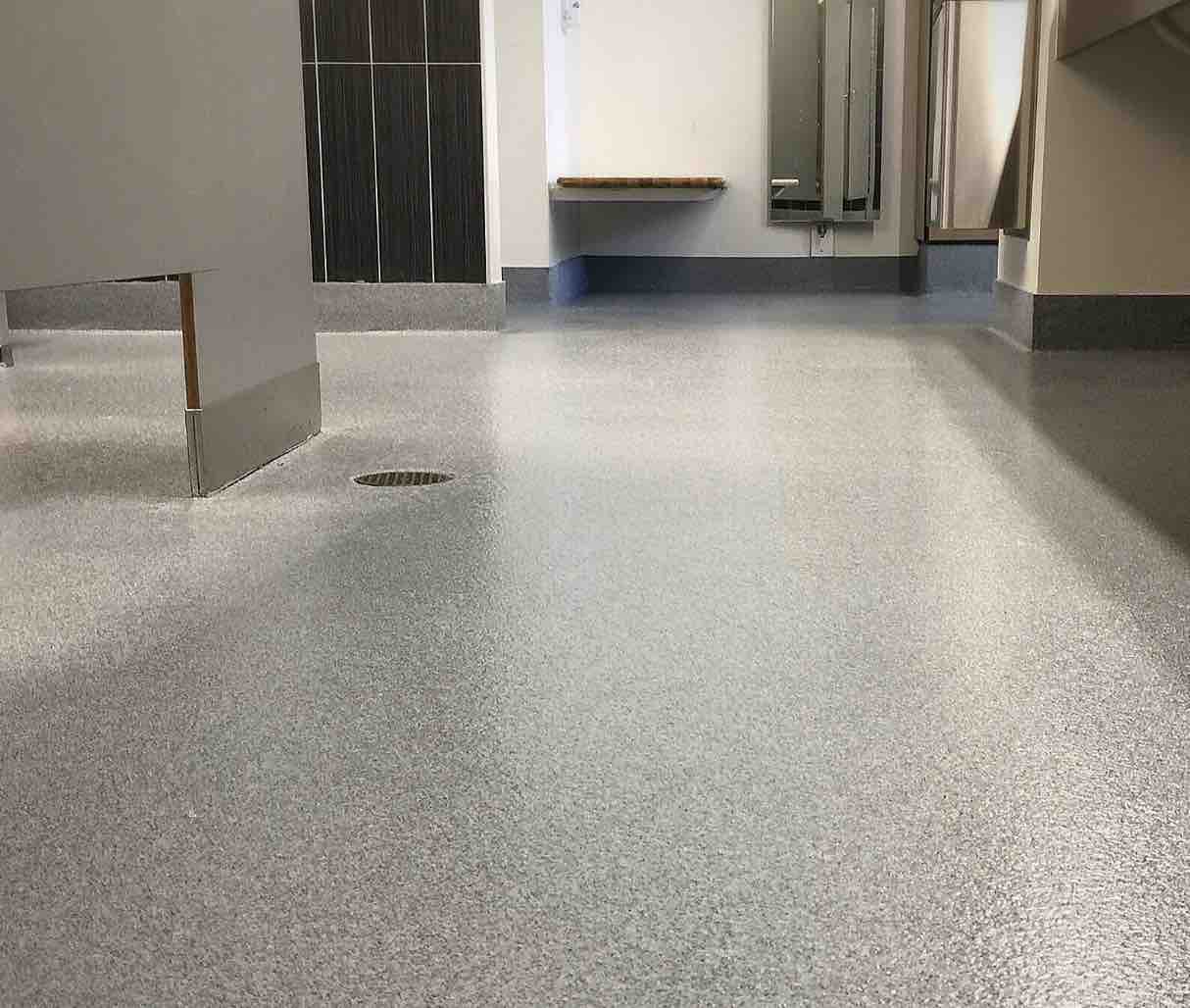
Floor Coatings Are Not Easy to Specify.
There isn’t one coating technology that works in every situation. There are many variables that can exclude certain systems from being viable solutions.
- High Performance Coatings
Many variables dictate the proper selection of the right traffic coating for your project.
- Is it pedestrian or vehicular?
- Are you trying to waterproof an area below, or protect the substrate, or simply create a non-skid surface?
- What is the construction of the substrate? Poured in place? Post tensioned? Is the concrete elevated? Is it on a metal pan? Over a membrane? On grade?
- How much elongation does the system require to span moving cracks or construction joints? Or are these left exposed and treated with caulking?
- Are aesthetics important?
- How much texture (skid resistance) do you want, and how aggressive should it be?
- If vehicular, are there ramps or tight turn radius’ that require heavier duty systems?
- Are there occupants near that require low or no-odor products?
- Is fast return-to-service important? What is the temperature during application?
- If existing, what is the condition of the slab?
The real answer is, there isn’t one coating technology that works in every situation. Any one of the variables above can exclude certain systems from being viable solutions.
Substrates that have the propensity to trap moisture under the coating and not let the concrete breathe or vent will require permeable coatings, or possibly a MVT formulated epoxy primer or base coat that can handle the elevated moisture levels. Prior to application, testing the concrete moisture levels can prove to be cheap insurance and will allow the project team to modify the primer or the entire system altogether. Moisture Vapor Emissions Rate (MVER) can be evaluated with the anhydrous calcium chloride test (salt test) described in ASTM F-1869-16a. Similarly, the internal slab RH can be measured utilizing in situ probes per ASTM F-2170-19a.
Some technologies are immune to high RH and elevated MVERs. These chemistries often promote positive side waterproofing but allow gaseous moisture to escape the slab. If there isn’t occupied space below, these systems are a great choice. They can also be used successfully in split-slab waterproof restoration applications.
Texture and slip resistance are vital to safety concerns, but tend to be inversely related to cleanability. Evaluating maintenance and cleaning capabilities and also necessary non-skid properties are controlled by aggregate selection, application methods, and resin thickness. Choosing the perfect combination is part of the specification, but it is highly recommended to install a mock-up for owner acceptance prior to full-scale installation. Again, cheap insurance to manage expectations and ensure owner satisfaction.
Cold temperature applications and quick return-to-service require chemistries that can cure in the necessary time, but also remain workable for applicators to install consistent results.
In all, selecting the right system for your specific project requires discussion around a multitude of variables. Partnering with our Consultants to evaluate your needs and requirements will ensure a specification that is both constructable and tailored to your needs.
Check out these other resources
Secondary Containment Coatings- What you need to know
Forklift Traffic on Warehouse Floors
Moisture Vapor Transmission Protection for Concrete Floors
Spalling Concrete and How to Fix It
Selecting the Right Traffic Coating
Concrete Outgassing and How to Prevent It
Considerations Before Coating Concrete Floors
Selecting Coatings for Secondary Containment
Static Dissipative Floor Coatings
Advantages of Polyurethane Cement Coatings
Exploring Decorative Resinous Flooring Options
UV Resistant Epoxy Floor Coatings
Don't miss these flooring project profiles
Secondary Containment Systems in the Southwest
Manufacturing Facility With Flair
Manufacturing Facility Drum Floors and Walls
Town of Gilbert NWTP Containment

Shielding Your Concrete Floors: Essential...
Discover how the right coatings can safeguard...

What Coatings Should be Used for Secondary...
Secondary containment coating systems are...

Exploring Decorative Resinous Flooring Options
Exploring Decorative Resinous Flooring: A World...